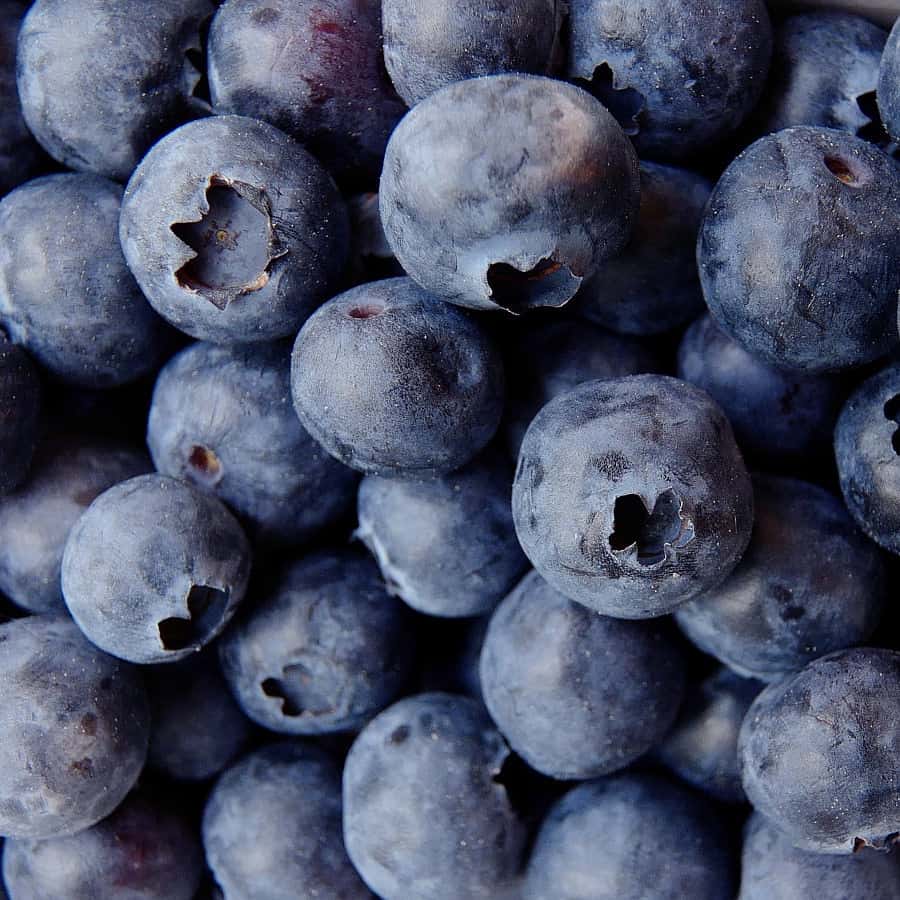
Could blueberries help improve blood pressure and cognitive function in older people? Researchers have been considering this question for years. The latest study suggests that wild blueberries may improve blood flow, reduce arterial stiffness, lower blood pressure and enhance cognitive function in older adults.
A Randomized Controlled Trial of Wild Blueberries:
In a double-blind randomized trial, 61 adults between the ages of 65 and 80 took about an ounce of freeze-dried wild blueberry powder daily or an equal amount of placebo (American Journal of Clinical Nutrition, March 25, 2022). Each day the blueberry powder provided 302 mg of anthocyanins, the purple and red compounds in blueberries.
None of the participants had cardiovascular or metabolic disease nor obvious cognitive impairment. They wore 24-hour blood pressure monitors and completed cognitive testing when the study began. After three months, they repeated the testing. Likewise, stool samples were analyzed at the beginning and end of the trial to detect any changes in gut microbe balance.
People taking wild blueberry powder performed significantly better on certain cognitive tests than those on placebo. In addition, their blood pressure was lower. There were no observable changes in gut microbiota nor in blood flow to the brain.
The authors conclude that
“WBB (poly)phenols may reduce future cardiovascular disease risk in an older population, and may improve episodic memory processes and executive functioning in older adults at risk of cognitive decline.”
This is not the first study suggesting that blueberries help people think better. Several earlier studies published in the Journal of Gerontology offered promising results.
Do Blueberries Help with Memory and Thinking?
Old Rats Thrive on Blueberries:
When it comes to cognitive performance, it seems that those who already notice some impairment might benefit the most from consuming a daily cup of wild blueberries. In one study in rats, the animals that performed poorly on a water maze test significantly improved their performance after six months of blueberry supplementation in their chow (Journal of Gerontology, A, July 2019). Those who performed well initially did not improve with blueberry supplementation. On the other hand, those who ate blueberry-laced chow did not make more mistakes at the end of the study. Animals in the control group made more errors. In addition, blueberry supplements reduced inflammation in the brain.
The researchers concluded:
“Therefore, consumption of BB [blueberries] may reverse some age-related deficits in cognition, as well as preserve function among those with intact cognitive ability.”
Aging Humans Benefit More If They Are Impaired:
Older people also benefit from blueberry supplementation (Journals of Gerontology, Series A, Biological Sciences & Medical Sciences, July 2019). Here too, those with cognitive impairment at the outset benefited from a supplement containing polyphenols from blueberries and grapes.
Unfortunately, seniors who started the study with good cognitive function did not improve noticeably. However, among those who began the study with cognitive impairment, blueberry flavonoids in the urine were linked to better test scores. The study included 215 volunteers between 60 and 70 years of age and ran for six months. The supplement contained 258 mg of flavonoids from blueberries and grapes; half the group got a placebo.
The investigators observed:
“Our study demonstrates that PEGB [polyphenol-rich extract from grape and blueberry] improves age-related episodic memory decline in individuals with the highest cognitive impairments.”
Significantly, a review of 11 studies found that blueberries help with delayed memory and executive function in both children and adults (Journals of Gerontology, Series A, Biological Sciences & Medical Sciences, July 2019). As the researchers point out, no one knows yet the ideal dose of blueberries to improve cognitive function.
Blueberries Help Lower Blood Pressure:
Another study in humans demonstrated that volunteers drinking blueberry beverages for a month lowered their systolic blood pressure (Journals of Gerontology, Series A, Biological Sciences & Medical Sciences, July 2019). Those consuming placebo beverages did not. Using gene analysis, the researchers identified the colorful compounds called anthocyanins as the active ingredients in blueberries. These compounds changed the expression of 608 genes, 3 microRNAs and 13 metabolite patterns. Ultimately, the fact that blueberries help lower blood pressure might explain at least some of the cognitive protection they provide. We wrote elsewhere about the link between blood pressure and cognitive function:
Citations
- Wood E et al, "Wild blueberry (poly)phenols can improve vascular function and cognitive performance In healthy older males and females: A double-blind randomized controlled trial." American Journal of Clinical Nutrition, March 25, 2022. DOI: 10.1016/j.ajcnut.2023.03.017
- Shukitt-Hale B et al, "Blueberries improve neuroinflammation and cognition differentially depending on individual cognitive baseline status." Journal of Gerontology, Series A, July 2019. https://doi.org/10.1093/gerona/glz048
- Bensalem J et al, "Polyphenols from grape and blueberry improve episodic memory in healthy elderly with lower level of memory performance: A bicentric, double-blind, randomized, placebo-controlled clinical study."
- Hein S et al, "Systematic review of the effects of blueberry on cognitive performance as we age." Journals of Gerontology, Series A, Biological Sciences & Medical Sciences, July 2019. https://doi.org/10.1093/gerona/glz082
- Rodriguez-Mateos A et al, "Circulating anthocyanin metabolites mediate vascular benefits of blueberries: Insights from randomized controlled trials, metabolomics, and nutrigenomics." Journals of Gerontology, Series A, Biological Sciences & Medical Sciences, July 2019. https://doi.org/10.1093/gerona/glz047

